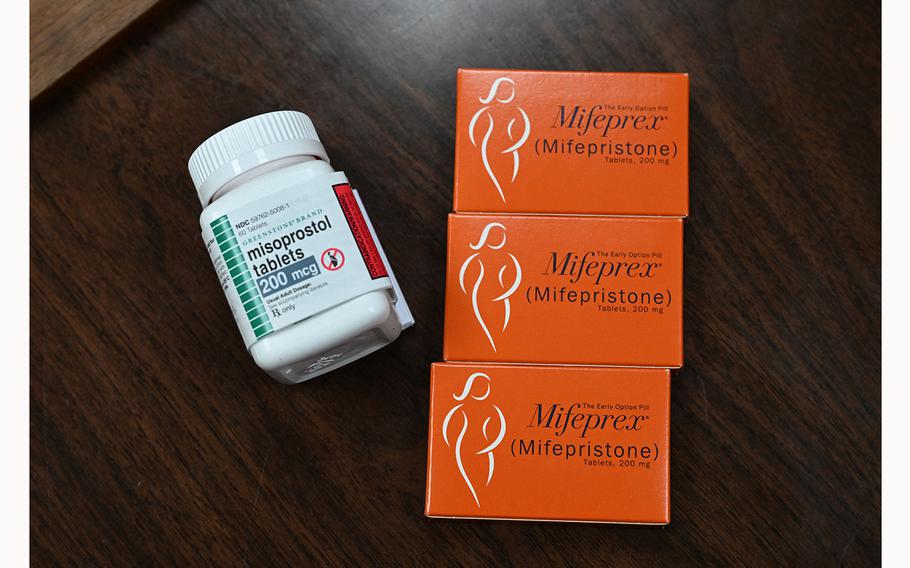U.S.
Louisiana first in US to make possessing abortion pills without prescription a crime
Bloomberg News May 25, 2024

Mifepristone (Mifeprex) and misoprostol, the two drugs used in a medication abortion, are seen at the Women’s Reproductive Clinic, which provides legal medication abortion services, in Santa Teresa, New Mexico, on June 17, 2022. (Robyn Beck/AFP via Getty Images/TNS)
Louisiana became the first state to make it a crime to possess the two main U.S. abortion pills without a prescription, after a new law added mifepristone and misoprostol to the list of controlled substances like highly addictive narcotics.
Gov. Jeff Landry, a Republican who opposes abortion access, said in a social-media post Friday that he’d signed the bill into law, just a day after the state Senate passed a bill by a 29 to 7 vote. The law goes into effect Oct. 1.
“Requiring an abortion inducing drug to be obtained with a prescription and criminalizing the use of an abortion drug on an unsuspecting mother is nothing short of common sense,” Landry said in a post on X. “This bill protects women across Louisiana and I was proud to sign this bill into law today.”
Louisiana, which has a near-total ban on terminating pregnancies, now classifies mifepristone and misoprostol in the same way as drugs with the potential for addiction or abuse. Criminalizing possession of the non-addictive medications could trigger similar measures in other GOP-led states, where lawmakers have expanded limits on access to abortion since the U.S. Supreme Court overturned the historic Roe v. Wade decision.
Mifepristone and misoprostol are the most commonly used method of terminating a pregnancy in the U.S., accounting for 63% of abortions last year, according to the Guttmacher Institute. The U.S. Food and Drug Administration says studies and use of the medications over two decades show the abortion pills are safe. The Louisiana Society of Addictive Medicine, which opposed the state law, says the abortion drugs have no potential for abuse and nothing in common with addictive medications on the controlled-substance list.
“The only reason this law does not criminalize women for taking the medications is because doing so has been shown to be so politically unpopular and they’re trying to save face before the election,” said Julie F. Kay, the executive director and co-founder of the abortion-rights advocacy group Abortion Coalition for Telemedicine. “Health care providers and families know a bad law when they see one and should hold those who passed it accountable.”
Studies show the pill and surgical abortions have a lower risk of serious complications than giving birth. A 2015 study published in Obstetrics & Gynecology showed about 0.3% of people who used mifepristone to end a pregnancy experienced a major complication, meaning they required hospitalization, surgery or a blood transfusion. Surgical abortions done in the first trimester of pregnancy, by comparison, resulted in major complications 0.16% of the time. In 2014, the CDC estimated the risk of a severe complication from childbirth at 1.4%.
Louisiana’s maternal mortality rate exceeds the national average, ranking 47th out of 48 states between 2018 and 2021, according to the CDC. Other states with strict abortion laws also had high maternal mortality rates, including Mississippi, Georgia and Alabama.
With assistance from Bill Haubert.
©2024 Bloomberg L.P.
Visit bloomberg.com
Distributed by Tribune Content Agency, LLC.